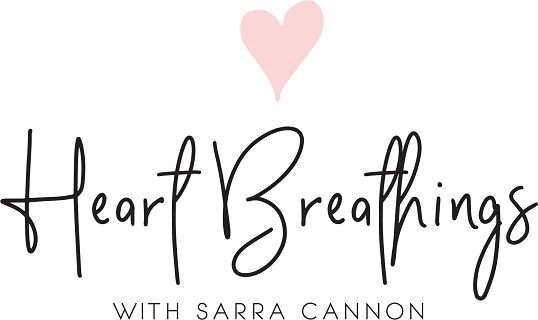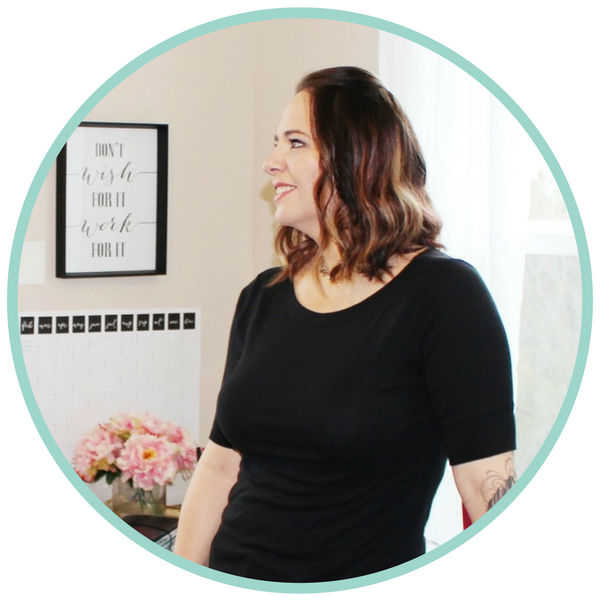
October 7, 2021 by Sarra Cannon
As Preptober ramps up and National Novel Writing Months draws near, many of us are still sitting here trying to decide which story idea is our best one.
Today, I have some tips for you on how to choose between story ideas for NaNoWriMo (and any time). I didn’t stop there, though, because seriously, how many of us pick an idea and then two weeks in start eyeing the next shiny idea? So, I’ve also added in some of my top ways to stick with an idea once you’ve committed to it.
Watch today’s video on choosing your best story idea for NaNoWriMo or keep reading for the major bullet points of today’s topic. Don’t forget to also grab your free Preptober Planner by filling out the form at the bottom of this post.
Below are my Top tips for choosing the right story idea for NaNoWriMo and any time you’re ready to start something new. First, though, before you can choose between ideas, you’ll need to take some time to brainstorm your list of ideas. For tips on this, see my post on Brainstorming Great Story Ideas here.
What’s the goal or outcome of the novel you’re writing? Knowing what you eventually plan to do with the book you write can help you decide the best story idea to go with right now.
Take some time to think about why you’re writing this book and what you hope to do with it or achieve by writing it. For some of us, writing during NaNoWriMo is just for fun. Maybe you’ve been writing a long series and want to take the next 30 days to just write something new and fun.
Maybe you’re getting serious about publishing, and you want to write the best idea to launch your publishing career. Your goal and reason for writing this book is an important step in choosing the right idea.
Once you have your goal in mind, take your brainstormed list of ideas and eliminate anything that doesn’t match up with the goal. For example, if your goal is to write your first book for publication, and you know you want to launch a career as a Science Fiction author, you can go ahead and eliminate any ideas that aren’t in the SciFi genre.
Another example might be if you know you just want to write a fun standalone so you can get back to your main series in January, you would eliminate any ideas that are clearly best for a series. Instead, you’d highlight the ideas that are great as standalones. (If you all want to see a video on how to know if a story is better as a standalone or series, comment below!)
Sometimes,, we get so in our heads about these types of decisions that we tune out our own intuition. One way to help decide between ideas is to test out your true gut feeling. It’s hard to do this by simply looking down a list, so what I like to do is write each idea on a small scrap of paper, fold them up, and throw them all in a cup. Pick them out one at a time and pay close attention to how you feel about that idea when you see it.
Does your skin get goosebumps? Are you thrilled to see that idea on the page? Does it excite you to think of this as your choice?
Or did you immediately feel blah or nope about this idea? Did your body contract and your stomach fill with dread?
Or did you get butterflies?
Let your intuition guide you to the idea your muse is most excited to start writing.
At this point, you’ve hopefully narrowed it down to the 2 or 3 ideas you’re most excited about. Now, it’s time to go a bit deeper with each one. I like to call this the daydreaming phase.
Take out a journal or open a new document. Set a timer for thirty minutes. Start daydreaming or writing everything you know so far or have in your imagination about the first story idea on your list. You might write about:
These ae just ideas, but the key here is to see how much this story ignites your imagination. When your timer goes off, take a break and then repeat the process for your second story idea. (You might even find it helpful to do this on two different days.)
Which idea did you have more to say about? Which idea seemed to flow? Which idea could you see like a movie playing in your mind?
That’s a good hint that you’ve got more than enough story juice to turn this into an amazing novel.
If you’ve made it this far and still haven’t chosen a story, it might be time to enlist the help of friends or fellow writers. Distill your basic idea down into a single paragraph. Run your premise by several different people, telling it to them as if you were telling them about this great TV show they should see.
Now, watch their reactions. Whichever idea people tend to perk up about, ask fun questions about, or generally get more excited to hear more about is a good bet for your next project.
Still can’t choose? If you’ve been through all the above tests and you still can’t decide which story is the best, then just roll a die and let fate choose. At this point, there is no “best” idea. There’s just a list of great ideas, and you can make any of them your own.
There are no wrong answers at this point, so just pick one and commit to it.
Which brings me to another thing I see so many authors struggling with. How do you actually follow through with a story idea? How do you avoid all those shiny new ideas when the story gets tough?
I’d love to do a full video on this topic, but here are a few quick tips.
Just like I said above, making a commitment to yourself and to your story is one of the single biggest things you can do to see it through. This is all about a mental decision to finish, no matter what. New stories are NOT an option until this one is done.
If you just can’t stop thinking about a shiny new idea, and it’s distracting you from your writing, then give yourself a limited amount of time to write it all down. I would suggest making it one hour or less.
Open a new document or pull out a small handful of notecards and jot down everything that has you excited about the new idea. When you’ve gotten it out of your system a bit and you’re confident you won’t lose any of the idea, put it in a drawer or a file folder and tell it that you’ll come back to it when the current story is done.
Most of the time, the shiny new idea is calling to us because it feels new and easy. The old story feels hard, or we’ve convinced ourselves we suck at writing it. We think we need something new, because that other idea will flow better/be easier/write faster.
But most of the time we just start in with the new story and carry the flow for a few weeks before we find ourselves right back in that same position. Writing is hard, and the solution to finishing a story is not finding an easier one.
Instead of jumping ship, try something different. Write out of order and skip to another scene later in the book. Run your ideas by a friend or talk through the plot with someone who knows about your story. Take a break and go for a run. Take a nap. Watch a movie in your genre for inspiration.
Decide that no matter how tough the story feels right now, you’re going to keep trying until it’s done.
Read this post about what to do when you get stuck.
Successful authors are the ones who finish books. If you want to be a successful writer, you have to stick to ideas long enough to finish them. There’s no way around that!
So, when things get tough and you feel the desire to quit or to start writing something new (that you also might never finish), remind yourself of your life’s goals. Remind yourself why you want to be an author and why it’s important to keep working toward your dreams.
If it helps, you can also journal abut why you fell in love with this idea in the first place. What inspired you? Why do you love these characters? How do you want to make readers feel when they pick up this book?
A little bit of excitement about your goals and your reason behind writing might just be all you need to get back to your desk and start writing again.
I hope you’ve found these tips useful. Of course, how to choose between ideas is a bit different from how to tell if your idea is a good one or not, so if you’d like to see me cover that topic, let me know in the comments.
I have more fun and helpful preptober content coming soon. Make sure to grab my free Preptober Planner by signing up for my mailing list. You are free to unsubscribe at any time.
Have a great week and happy writing.


I have been self-publishing my books since 2010, and in that time, I've sold well over half a million copies of my books. I'm not a superstar or a huge bestseller, but I have built an amazing career that brings me great joy. Here at Heart Breathings, I hope to help you find that same level of success. Let's do this.